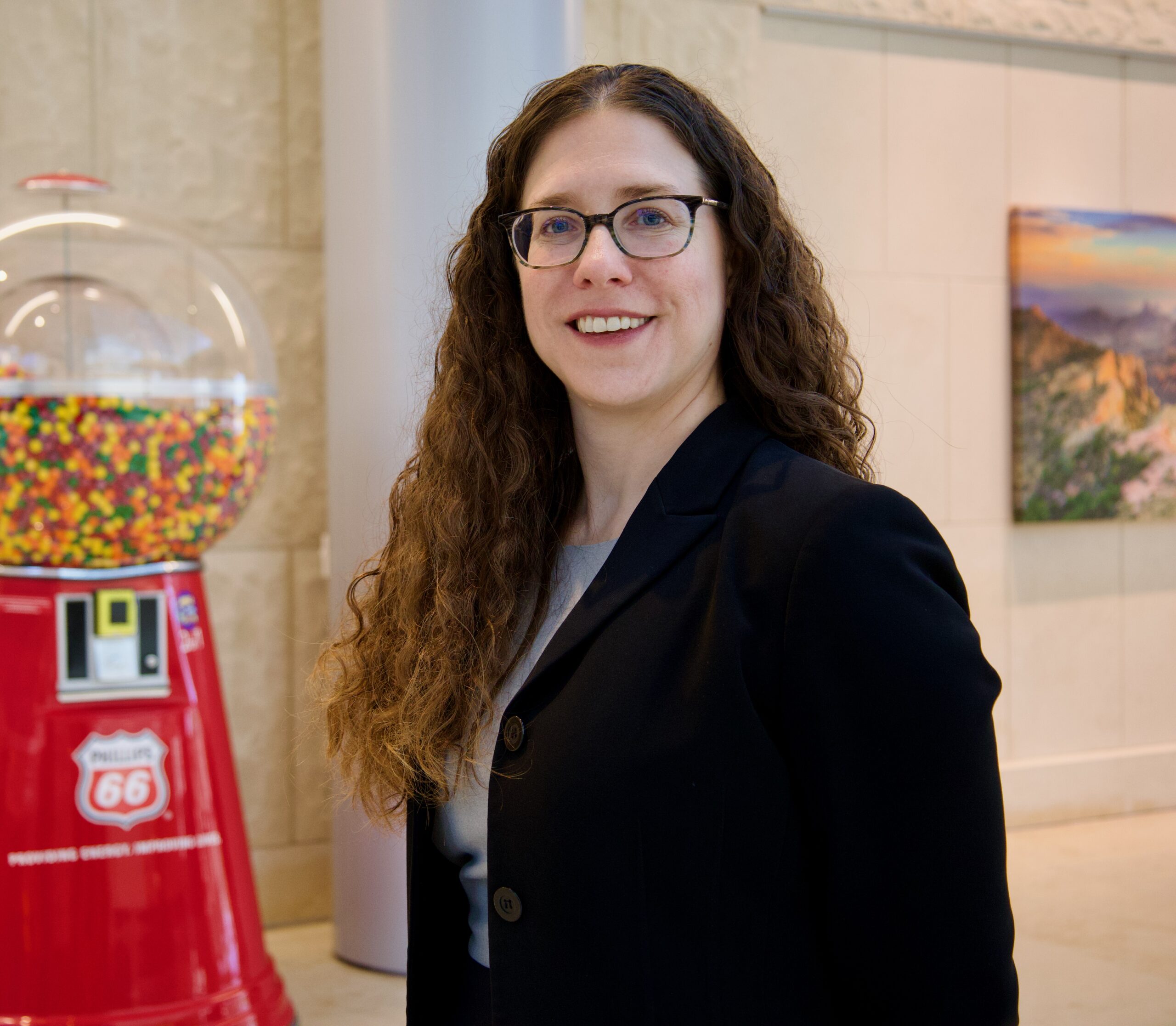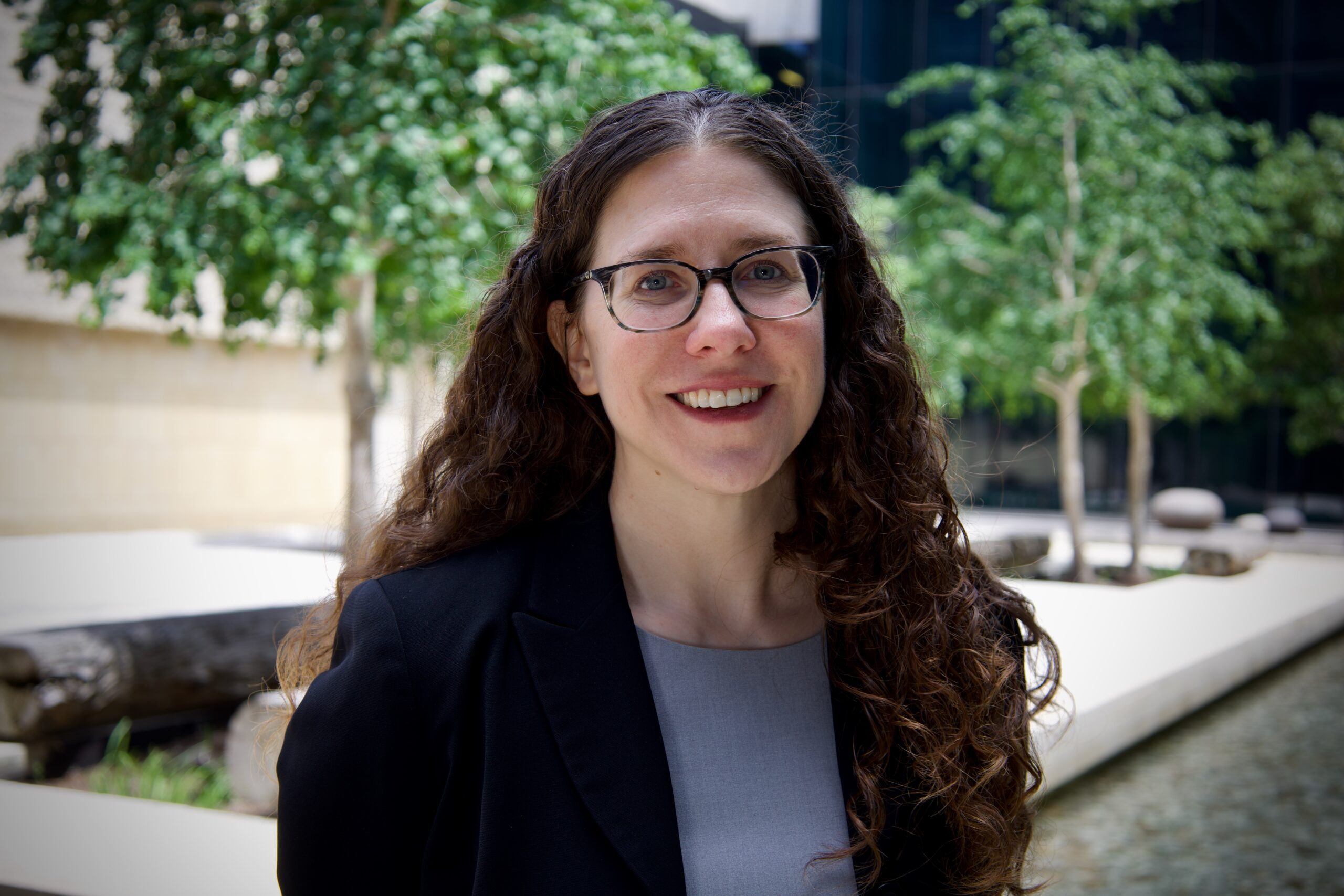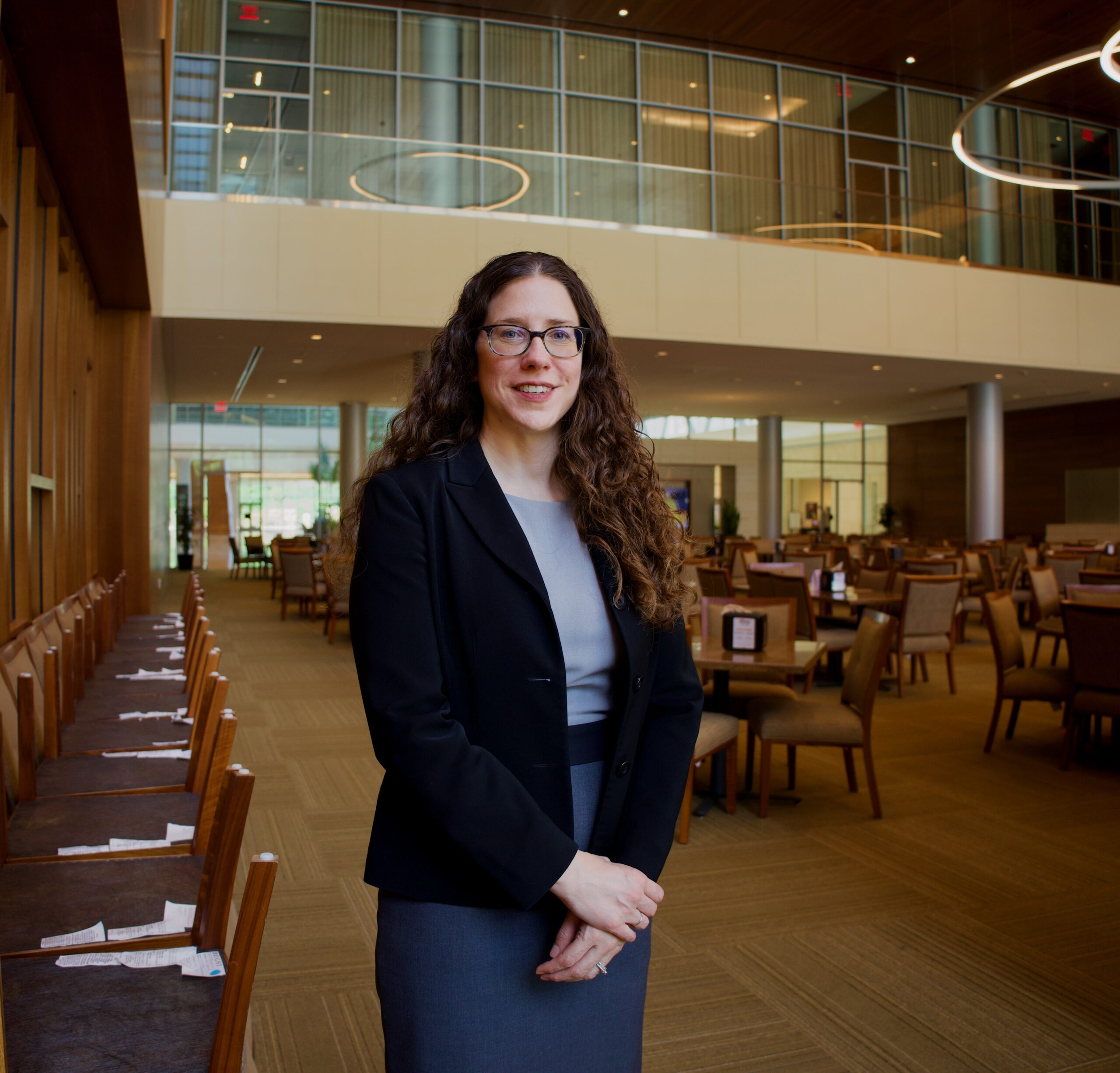Kristina McQuaid has no memories of wanting, as a child, to become a lawyer.
Her father served in the Army and then spent his working life in oil and gas. Her mother had worked odd jobs, cooking at their church or helping folks with their taxes. Once Kristina and her brother had grown, she’d created her own medical billing business.
As senior counsel at Phillips 66, McQuaid not only married her husband with the help of a lawyer but also managed to marry her father’s oil and gas career with her mother’s bent for business.
“At first, I did not want to be a lawyer. I really enjoyed math and wanted to be a stockbroker,” she says.
But she didn’t. And now she finds herself nominated as a 2024 finalist for Senior Counsel of the Year for a Large Legal Department by the Association of Corporate Counsel’s Houston Chapter and The Texas Lawbook.
She has been nominated for her role in the $1.1 billion acquisition of the South Texas Gateway Terminal by Canada’s Gibson Energy. STGT was a new crude oil export facility in Ingleside, on Corpus Christi Bay. The sprawling facility includes a deepwater open-access marine terminal and 20 tanks that store as much as 8.6 million barrels of crude from pipelines connected to producing fields in the Permian Basin and the Eagle Ford.
STGT was owned by a joint venture — which itself was half-owned by Houston-based Buckeye Partners — with the remaining 50 percent split between Marathon Petroleum and Phillips 66.

“Kristina partnered with many internal stakeholders and other parties to handle all elements of the transaction in-house — without the engagement of outside counsel — and successfully concluded the transaction on a short time horizon on June 14, 2023,” said Michael Voutsinas, senior director of Legal Operations and Kristie Dewey, manager of Legal Operations, for Phillips 66.
Making matters more complicated, the Phillips 66 legal team at that moment was also deeply involved in the $3.8 billion take-private purchase of DCP Midstream, which is also nominated for 2024 M&A Transaction of the Year.
Premium Subscriber Q&A: We asked Kristina McQuaid a few questions about her work and her expectations of outside counsel.
“Kristina has led or supported M&A transactions totaling over $7 billion, including the disposition of the Alliance Refinery; the disposition of the South Texas Gateway; the disposition of various US oil and gas assets; the acquisition of 51% of the share capital of a chemicals business and related restructuring; and the multi-jurisdictional disposition of a subsea controls business in exchange for preferred stock of seller,” Voutsinas and Dewey said in their nomination of McQuaid.
Over the course of her career, McQuaid’s skillset has reached far beyond handling M&A deals, they said.
- McQuaid has negotiated multiple drilling rig contracts in both production sharing and concession regimes;
- She assisted in developing contracting strategy and ensuring compliance with Joint Operating Agreement procurement requirements in operated and non-operated consortia.
- Worked with the Brazilian rig procurement industry to align with international norms.
- She assisted in implementing trade sanctions compliance practices related to drilling activities in the Russian Federation.
It’s not a bad legal track record for someone who once longed to be a stockbroker.
A ‘Proud’ Texan’s Progress
McQuaid was born in Longview, reared in Lubbock, attended college in Fort Worth and went to law school in Houston.
“I am a proud Texan through and through,” McQuaid says.
Though her parents encouraged her ultimate choice to become the first in their family to attend law school, it was not her intention, even after she graduated from Texas Wesleyan in 2000 with a business degree.

“After undergrad I decided I wanted to go back to school and either obtain an MBA or go to law school,” McQuaid explained. “After careful deliberations, including speaking with attorneys that I knew, I decided to attend law school. The first day of law school I knew I had made the correct decision.”
There were two major experiences, she says, that led to her career course correction.
“The first was when I met my husband while studying abroad in Ireland,” she told The Lawbook.
“We wanted to get married, but navigating immigration as a poor college student was not easy. We were fortunate that a pro bono attorney at Catholic Charities assisted us with the process.”
The second experience was during her first job after college.
“I was working as a financial analyst and helping with union negotiations,” she says. “I had an opportunity to work with outside counsel who helped me realize I could be a lawyer. Prior to that, I think I was a little intimidated because no one in my family had ever been an attorney.”
“Even though I knew I wanted to use my business acumen as a corporate lawyer and did not want to be an immigration lawyer or labor attorney, I am grateful for those two experiences,” she says.
Once she made the decision, however, it was her father’s experience that guided her decision to pursue a corporate practice.
“Growing up, my dad was in the oil and gas industry. I remember being jealous of the international travel he experienced, and I knew that I wanted to have a similar career,” she says.
While at the University of Houston, she was a judicial extern for Bankruptcy Judge Jeff Bohm in the Southern District of Texas. And in 2007, McQuaid authored an analysis of the role of deregulation for the Houston Journal of International Law (“Delta & Northwest File for Bankruptcy: Is it Time to Ground a Major Airline?”).
After law school, she joined Baker & McKenzie, where she plunged into the corporate experience.
“At B&M, my practice consisted of one-third M&A deals, one-third securities work, and one-third corporate and tax restructurings. I loved the variety,” McQuaid says.
In private practice, and for various-sized clients, she assisted with 8-K filings, 10-K filings and proxy statements; worked on registration statements and drafted a prospectus; coordinated a $1.4 billion notes offering and a $700 million notes tender offer; and worked on corporate re-domestications to the United Kingdom, to Ireland and to Switzerland.
When she moved in-house, first to Anadarko and then at ExxonMobil, her experience became even more refined.
“At Anadarko I learned more about being a commercial lawyer and worked on certain M&A transactions. At Exxon, I was able to do more international and project work.”

“I worked (At Exxon) with drilling and procurement,” McQuaid says. “I was the lawyer responsible for Exxon’s offshore worldwide rig contracts, including but not limited to Guyana, Brazil, Angola, Nigeria, Malaysia, etc. I learned a lot at my time with Exxon and worked with some very smart and successful clients and lawyers.”
By the time she joined Phillips 66 in October 2021, McQuaid says she felt up to the challenge. She had to be.
At P66, she provides legal support for approximately 25 operated and non-operated midstream joint ventures, including the drafting and amending of governing documents, reviewing board resolutions, consents and meeting minutes, attending board meetings and advising on corporate matters. She conducts due diligence related to potential acquisitions and dispositions and coordinates with colleagues and internal stakeholders — including investor relations, corporate communications, treasury, tax, finance, EHS and various other internal groups.
“I had the privilege of working for one of the largest independents (Anadarko) and one of the largest majors (ExxonMobil),” she says. “Each position taught me something valuable.”
“Phillips 66 was a natural progression for me. It is the culmination of various prior work experiences and it appealed to me because I have an opportunity to do commercial work, M&A deals, and corporate/JV administration. I still get to do work that I enjoy and have an opportunity for growth and development,” McQuaid says.
It’s precisely because of all those experiences, she says, that the greatest challenge in the $1.1 billion South Texas Gateway Terminal deal was the short time frame in which it had to be consummated. The members of the joint venture had already agreed to work together, and the operator acted as the seller’s representative in the bid process. There was no outside counsel.
McQuaid worked on the Member Interest Purchase Agreement, the various side-letter agreements among the sellers and an exclusivity letter. From the time Gibson Energy was selected as the winning bidder and mark-up of the MIPA, it took only eight days to get it executed on time. McQuaid navigated the P66 internal review and approval process, reviewed the press releases and it was done.
She has almost no regrets about joining Phillips 66 and certainly none about becoming a lawyer.
“In the short time I have been at Phillips 66, I have worked with the lubricants team and was given an opportunity to expand my knowledge by representing the Phillips 66 midstream group. I have worked on numerous M&A deals and signed and closed two dispositions as lead in-house counsel on those transactions.”
For more than 20 years, she’s been married to Declan Joseph McQuaid, the beau for whom she sought immigration help from that Catholic Services lawyer.
“As an attorney I have volunteered at immigration clinics as a way to pay it forward. Even as a corporate in-house lawyer there are always ways to help others in the community, and I will always be grateful to those attorneys who helped me,” McQuaid says.
The downside? “The commute,” she says. “I genuinely mean it when I say I enjoy going work — it is just the drive that is challenging because I live in The Woodlands.”
The drive is 51 miles and takes an hour and 15 minutes on a good day. But for McQuaid, every day is a good day these days.
